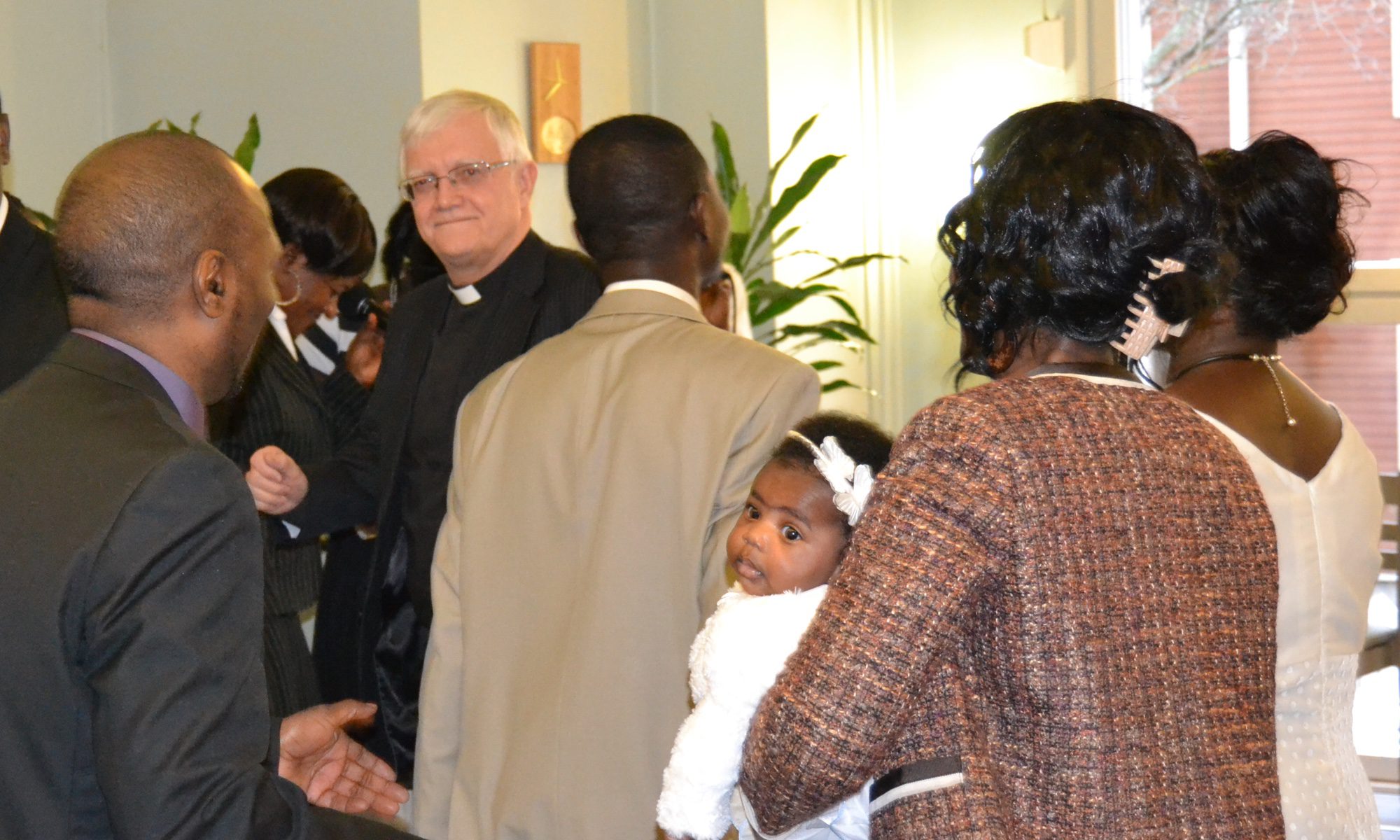Introduction
This edition of our Newsletter discusses God´s provision and the relevance of His Word to those who depend on Him. This is seen in the life of Elijah, who, after having killed the prophets of Baal, received death threats from Jezebel, the wife of king Ahab. This made him run for his life into the wilderness and took refuge under juniper trees (1kgs 18-19:1-4). In his desperation and loneliness, Elijah desired of God to end his life (1Kgs 19:5), but God´s plan was not to kill him, but to protect and provide for him so that he might live on. This is supported by the scripture in the next section.
God´s Provision in the Midst of Hopelessness
“And as he lay and slept under a juniper tree, behold, then an angel touched him, and said unto him,
Arise and eat. And he looked, and, behold, there was a cake baken on the coals, and a cruse of water at his head. And he did eat and drink, and laid him down again. And the angel of the LORD came again the second time, and touched him, and said, Arise and eat; because the journey is too great for thee. And he arose, and did eat and drink, and went in the strength of that meat forty days and forty nights unto Horeb the mount of God” (1Kgs 19:5-9).
When all hopes were gone and Elijah never expected the last meal, God provided for him. In this, God revealed Himself as Jehovah Jireh (Gen 22:12-14). God´s purpose for Elijah was to give him an expected end as He has promised His people (Jer 29:11). Paul strongly defends God´s provision for believers when he writes that his God shall supply all their needs according to His riches in glory by Christ Jesus (Php 4:19). In the book of Exodus, the Lord God showed himself strong by providing manna and drink in the wilderness. These provisions were prepared in heaven and dropped down for the people to eat. They ate this for forty (40) years until they got to the boarders of the promised land (Ex 16:35, Ex 17:6).
In another account, Psalms records that God rained down manna upon them to eat, and gave them of the corn from heaven. Man ate the food of angels: He sent them meat to the full and He rained flesh also upon them as dust, and feathered fowls like as the sand of the sea. He allowed it to fall in the midst of their camp, round about their habitations, so they ate and were well filled because, God gave them their own desire (Psa 78:24-29).
Here, God is the provider, but His children are the eaters. They had the responsibility to pick the manna up and to eat in order to be nourished by it. God knows how to provide for His children in the midst of difficult times.
Jesus, Our Meal
Jesus informs us that He was that manna that the Old testament church ate in the wilderness. He argues that that manna was not provided by Moses, but His father gave it to them. Upon further
discourse, He made it clear that He is the bread of God that comes down from heaven and gives life unto mankind, so that anyone who eats of him shall never hunger again (Jn 6:31-36).
Again, Jesus affirms to His listeners that He is not only the living bread but also the living drink. He contends that anyone who believes in Him shall never thirst (Jn 6:35). He proves this to the
Samaritan women at the well. He informs her that if she knew the gift of God and who he was, she would require of him living water because whosoever drinks of His water shall never thirst, but that
water shall be in him or her a well of water springing up into eternal life (Jn 4:11-15). This makesHim a complete meal; bread and drink.
Paul, in his argumentations, puts it forward, that, the rock from which the Israelites drank in the desert was Jesus who followed them, and that the water they drank was a spiritual drink which came from Jesus Himself (1Co 10:1-4). We have sufficient evidence to believe in God as our provider. We need to trust Him fully because, He would never leave us nor forsake us (Deut 31:6, Heb 13:5)
Our Manna; The Word of God
It has been noticed, from the foregoing discussions, that the manna was the food of angels, and that Jesus Himself is that manna. It could be said that the cake and the drink provided to Elijah were angels food since they were brought by the angel of God ( 1Kgs 19:6-7). What then does it imply to us today? Angels still bring to us glad tidings and spiritual food, which is the sweet scroll (Eze 2:8) meant to be internalized. The scroll ought to be thoroughly ruminated and digested for our spiritual growth and development in Christ Jesus.
Ezekiel was made to eat a scroll as below statements indicate:
“Moreover he said unto me, Son of man, eat that thou findest; eat this roll, and go speak unto the house of Israel. So I opened my mouth, and he caused me to eat that roll. And he said unto me, Son
of man, cause thy belly to eat, and fill thy bowels with this roll that I give thee. Then did I eat it; and it was in my mouth as honey for sweetness. And he said unto me, Son of man, go, get thee unto the house of Israel, and speak with my words unto them” (Eze 3:1-4)
According to Ezekiel, God caused him to eat a scroll which is the Word of God. This is a confirmation of the words of Jesus, that a man shall not live by bread alone, but by every word that proceeds from the mouth of God (Mat 4:4), as detailed in Deut 8:3. Ezekiel´s strength came from the scroll he ate and he was to fill his belly with God´s word and to preach same but nothing else.
Similarly, John was asked to take a little book from the hand of an angel which he did. He was instructed to eat the book up. The book was expected to be sweet in his mouth but taste bitter in his stomach. Having eaten the book, he was instructed to prophesy before many nations, people, tongues and kings (Rev 10:8-11). The scroll is more to be desired than gold, and even than much fine gold because, it is sweeter also than honey and the honeycomb. It must be chosen because by it people are warned and in obeying them people receive great reward (Psa19:10-11).
In his admiration, David exclaims “How sweet are thy words unto my taste! yea, sweeter than honey to my mouth! Through thy precepts I get understanding: therefore I hate every false way” (Psa 119:103-104). Jeremiah also shares with his hearers how he esteems the Word of God. He writes that “thy words were found, and I did eat them; and thy word was unto me the joy and rejoicing of mine heart: for I am called by thy name, O LORD God of hosts” (Jer 15:16). Job tells of his attitude toward the Word of God as he answers back his friends. He indicates that he has not gone back from the commandment of God because he values the Words of God more than his necessary food (Job 23:11-12). Job esteems the Word of God more than his physical foods and needs.
The Bible as divinely Inspired Book
Peter informs us that, scriptures, though written by men, they did so at the will of God, as holy men of God were moved by God´s Spirit (2Pe 1:21). Paul is of a similar view when he writes that all scriptures are given by the inspiration of God, and it is good for doctrine, reproof, correction and instruction in righteousness, so that people of God may be perfect, completely prepared for all good works (2Ti 3:16-17).
Making Too Great a Journey
The Angel encouraged Elijah to awake and eat because the journey was too great or burdensome for him. When he did, he was able to walk for forty (40) days and nights in the strength of the food until he got to the designated destination (1Kgs 19:7-8). The Israelites also walked in the strength of the manna until they got to the borders of their destination as detailed above. In the same way, believers would be able to walk in the strength of God´s Word to the promised land (heaven). The written word of God must be trusted or depended on, if we could ever make it to the end. Believers must make conscientious efforts to systematic study and digest the scriptures and live by them.
Conclusion
According to Job, Jeremiah, Ezekiel and others, scriptures are as sweet as honey in their mouths, but to some of us, modern day Christians, the Word of God as a bitter pill, both in our mouths and stomachs. If the people of God continue to show strong dislikes for the word of God, they would grow weary and fall by the wayside before their complete salvation. As believers, we have a great journey to make so we need the strength in God´s word to finish it. The best way to keep ourselves from sin is to keep the word of God in our hearts and be willing to be obedient to walk it. Peter writes that for new and young believers, we need to desire the sincere milk of the Word of God, in order to grow by it (1Pe 2:2). Christians would be able to go through the challenges of life and overcome sin only if the Word of God is made our daily meal.
Prayer: Dear Lord God, we humbly ask you to reactivate our taste buds for your Word, for us to hunger and thirst for it, so that we shall live the rest of our lives on it. May we and our families find comfort and refreshment in the study of your Word. In the name of Jesus Christ, our Lord. Amen

